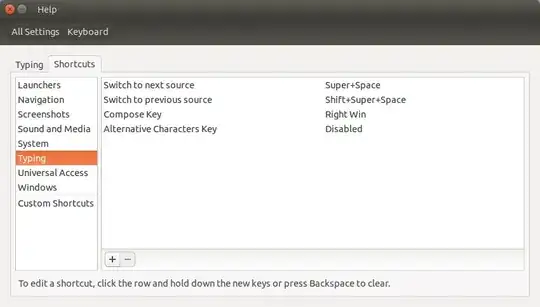I am using Ubuntu since August 2010. Now, I am using Ubuntu 14.04 with gnome-shell 3.12.1. I was trying to find shortcut for toggling language but it couldn't work and my grave accent key (`) is also disabled. Now, whenever I am pressing this key on my keyboard, it works as Esc key. Can some-one tell me how can I configure it? Can some-one tell me how can I define a key-board shortcut key for input languages-toggling.
When I am pressing command "xev -event keyboard" then it opens a small window and in that if I press grave key (`) then the output is as:
KeyPress event, serial 28, synthetic NO, window 0x4000001,
root 0x2bb, subw 0x0, time 2422193, (366,566), root:(368,710),
state 0x0, keycode 49 (keysym 0xff1b, Escape), same_screen YES,
XKeysymToKeycode returns keycode: 9
XLookupString gives 1 bytes: (1b) ""
XmbLookupString gives 1 bytes: (1b) ""
XFilterEvent returns: False
KeyRelease event, serial 28, synthetic NO, window 0x4000001,
root 0x2bb, subw 0x0, time 2422339, (366,566), root:(368,710),
state 0x0, keycode 49 (keysym 0xff1b, Escape), same_screen YES,
XKeysymToKeycode returns keycode: 9
XLookupString gives 1 bytes: (1b) ""
XFilterEvent returns: False
